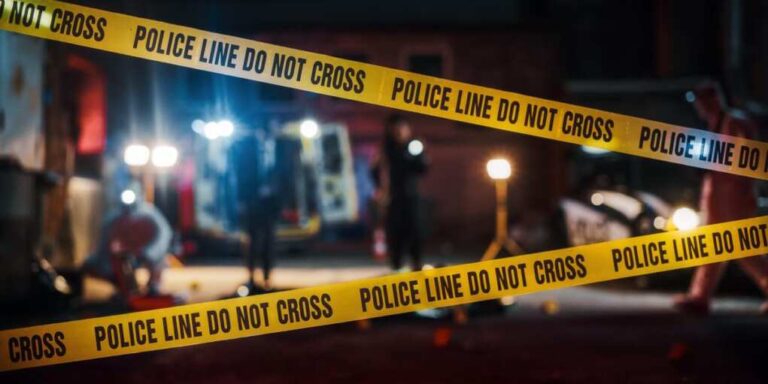
President Donald Trump didn’t tiptoe around a loaded question from NBC News White House correspondent Yamiche Alcindor on Sunday. After Alcindor asked if he was “trying to go to war with Chicago,” the president cut her off and unloaded.
“Be quiet, listen! You don’t listen! You never listen. That’s why you’re second-rate,” Trump said, before laying out why federal agents are headed to the Windy City.
“We’re not going to war. We’re gonna clean up our cities. We’re gonna clean them up, so they don’t kill five people every weekend,” he added. “That’s not war, that’s common sense.”
The dust-up came on the heels of Trump’s weekend troll that sent Democrats and media scolds into a frenzy: an AI-stylized image casting him as Robert Duvall’s Lt. Col. Kilgore from Apocalypse Now, rebranded “Chipocalypse Now,” with the caption, “I love the smell of deportations in the morning. Chicago about to find out why it’s called the Department of WAR.” The joke nodded to his move to restore the Pentagon’s historic “Department of War” moniker and telegraphed an immigration enforcement surge aimed at Chicago’s sanctuary posture.
Cue the pearl-clutching. Illinois Gov. J.B. Pritzker declared the post “not normal” and accused Trump of threatening “to go to war with an American city.” Sen. Dick Durbin scolded the imagery as “embarrassing.” Chicago Mayor Brandon Johnson—who recently urged residents to “rise up” against federal officers—warned of “authoritarianism.” Progressive pundits went further, tossing around the f-word (“fascism”) as if a satirical meme were a troop movement.
But Trump made plain the mission isn’t cinematic—it’s practical. The White House has signaled that federal manpower is headed to Chicagoland, with additional resources staging at Naval Station Great Lakes to support immigration enforcement and violent-crime suppression. The president also reiterated he’s willing to use National Guard support if local officials fail to protect the public, citing the results in Washington, D.C., where a federal crackdown has coincided with a drop in violent incidents.
Alcindor’s question—premised on the meme being literal—handed Trump a hanging curveball. He pounced, reminding the press that the status quo in Chicago is not working. Years of soft-on-crime prosecutors, revolving-door bail practices, and political leadership more animated by rhetoric than results have left neighborhoods bleeding. Even over the Labor Day weekend, dozens were shot, with multiple fatalities—numbers that have become a grim refrain.
The president’s sharpened posture reflects a broader law-and-order campaign: federalized crime operations in D.C.; legal and physical pressure on transnational cartels; and a growing network of detention capacity for criminal illegal aliens. Chicago, he signaled, is next on the list of cities “screaming for us to come.”
Meanwhile, the media fixation on the meme was the tell. Rather than grapple with whether Chicagoans will be safer if federal agents target violent offenders and criminal aliens, headlines obsessed over Photoshop and tone. That dynamic is familiar: outrage about style to avoid debating substance. Trump, never shy about using spectacle to get attention, also knows how to use it to expose priorities—who’s more offended by a joke than by weekly body counts.
As for Alcindor, Sunday’s exchange fits an ongoing pattern. She previously charged Trump with turning the GOP into a “white nationalist party,” and when he once urged her to “be nice,” she framed it as an attack on her identity rather than a commentary on her approach. The president’s “second-rate” rejoinder wasn’t subtle, but it was strategic—calling out what he portrays as agenda-first journalism that refuses to hear the answer it asks for.
Chicago doesn’t need a meme. It needs fewer murders, fewer armed robberies, and fewer gang shootouts. Trump’s message to the city was blunt: help is coming—whether or not local leaders like the optics. And his message to a media class parsing pixels while families plan funerals was even blunter: stop taking jokes literally and crime lightly.
When asked whether he’s sending troops tomorrow, Trump smirked: “We’re going,” then paused, “I didn’t say when.” If the point of the “Chipocalypse” post was to get everyone’s attention, mission accomplished. Now the question is whether the crackdown delivers what Chicago needs most: results.






